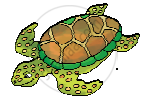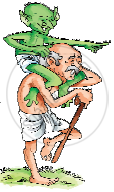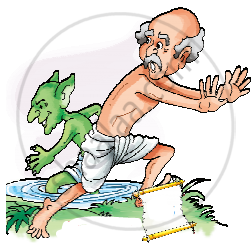Advertisements
Advertisements
प्रश्न
Make new words by adding/dropping a few letters from the root word. Some are done for you.
| -ed | -ing | -er | -est | |
| pound | × | × | ||
| try | tried | × | × | |
| large | × | × | ||
| new | × | × | ||
| tasty | tasted | tasting | tastier | |
| wise | × | × | × | × |
| stare | ||||
| clean |
Do any of these words use all of four endings?
उत्तर
| -ed | -ing | -er | -est | |
| pound | Pounded | Pounding | × | × |
| try | tried | Trying | × | × |
| large | × | × | Larger | Largest |
| new | × | × | Newer | Newest |
| tasty | tasted | tasting | tastier | Tastiest |
| wise | × | × | Wiser | Wisest |
| stare | Stared | Staring | × | × |
| clean | Cleaned | Cleaning | Cleaner | Cleaner |
Yes, tasty and clean use all of four endings.
APPEARS IN
संबंधित प्रश्न
The wise old bird helped them to escape.
Let's create a pyramid!
Use the following clues.
- A two-letter word beginning with B.
- A three-letter word beginning with C.
- A four-letter word beginning with D.
- A five-letter word beginning with E.
- A six-letter word beginning with F.

Read the following passage and answer the question that follow.
|
Oliver was a nine-year-old boy. He lived with other homeless boys in an orphanage. He was pale and thin as were the other boys living there. This was because they had to work hard but were never given enough to eat. The owner of the orphanage, Mr. Bumble, was a cruel man and he ill-treated the boys. The boys were always hungry It was true that they were given three meals a day but each meal consisted only of a bowl of watery soup. They were almost starving. So it was decided by them to ask the master for more soup. But who would bell the cat? Finally, the task fell to Oliver. When all the boys had assembled in the cold stone hall for their evening meal, the soup was served. It soon disappeared. The boys whispered to one another and one boy pushed Oliver a little. Oliver, making a brave effort, stood up, walked up to the master with his bowl and spoon in his hand, and said tremblingly, “Please sir, I want some more.” |
1. Why did Oliver live in the orphanage?
2. Who was Mr. Bumble?
3. What meals were the boys given?
4. What did Oliver say to Mr Bumble?
5. The boys were given three meals a day. Then why were they always hungry?
- Because the soup they were given was never enough.
- Because they worked very hard all day long.
- Because the older boys drank up their soup.
6. Find the words from the passage that mean the same as
- very hungry (para 2) ______
- to vanish (para 3) ______
7. ‘All the boys assembled in the cold stone hall.’ Here the word assembled means
- moved away
- collected
- worked together
8. From the word 'assembled' remove the last two letters. Add one letter to make a word which means a time at the school when the whole school gathers.
assembl______
9. Give a suitable title to the passage.
The students have _______ about ‘road safety’.
Nobody has seen him ________ yesterday.
Bold the correct meaning of the given words. You may need to use the dictionary.
| idled away | wasted | rested | admired |
| constant | coffee | construct | steady |
| companion | dog | stranger | partner |
| realise | to understand | to set free | real |
| descend | to not send | to be decent | to move down |
| barrel | a wooden container | a musical instrument | a bag |
| contents | to be happy | the ingredients | the index of a book |
There were seven brothers altogether in the Sultan’s family.
Why did the Barber want a lot of food?
Fill in the blanks by adding un-, im-, or dis- to the words given in the box.
| tidy, patient, kind, like, able, appear, possible. |
- The teacher got upset with Rani because her work was ______
- The dog was________ to climb the tree to chase the cat.
- I _______ hot milk, I like it cold.
- It is ________ to cross the road during peak traffic hours.
- The magician waved his magic wand and made the rabbit _____
- The passengers became __________ when the train was late again.
- It is very ________ to make fun of another person’s weaknesses.
Now use the joining word given in the option to fill in the blank.
We will reach on time _______ we go by the car.
Name the creature to whom you would look like Gulliver. The creature is now extinct.
The word begins with the letter D______.
From the text, write the sentence that tells you the following.
Gulliver was a learned man.
“Nobody took Hari’s hand. Nobody went near him. Nobody played with him.” This shows that Hari had.
Find out words which are opposites or are closest to being the opposites of the words given below. Then write down the opposites in the grid.
| Down | Across |
| 1. smile | 3. quiet |
| 2. happy | 5. punish |
| 4. strong |

Give the full forms of
won’t ______
weren’t ______
wouldn’t ______
couldn’t ______.
Complete the blank with rhyming word of the following and practice aloud.
Prawn- d ______
Can you tell the difference between a turtle and a tortoise? Write a few lines.


Name the place in Manipur where the Ningthou and Leima ruled.
Make a list of the action words from this story.
| - ed action words | irregular action words | ||
Fill in the correct word in the blanks and complete the story.
In a forest, there _________ (live/lives/lived) a goblin named Cruel. One day, he __________ (meet/met/meets) an old man wandering in the forest. Immediately, Cruel _____________ (leap/ leaps/leapt) on to the old man’s shoulders and _____________ (order/ orders/ ordered) him, “Let's go. Move fast.”

The frightened old man _________ (obey/obeys/ obeyed) the nasty goblin and _______ (walk/ walks/walked) on. As they ___________on, (move/moves/moved) he _________ (notice/ notices/ noticed) that the goblin's feet were very tender. The old man ____________ (ask/asks/ asked) Cruel, “ Sir, how are your feet so soft and tender?” Cruel __________, (reply/ replies/replied) “ I have taken a vow that I will not touch the ground with my feet, till I wash them.” They soon ____________ (come/comes/ came) to a pool. The goblin ________ (instruct/ instructs/ instructed) the old man to wait for him while he ___________ (enter/enters/ entered) the pool. The old man ___________ (think/ thinks/ thought) to himself, “Now that the goblin has wet his feet, he does not need me. Let me run for
my life or he will surely eat me up.” So he ___________ (run/runs/ran) off.

